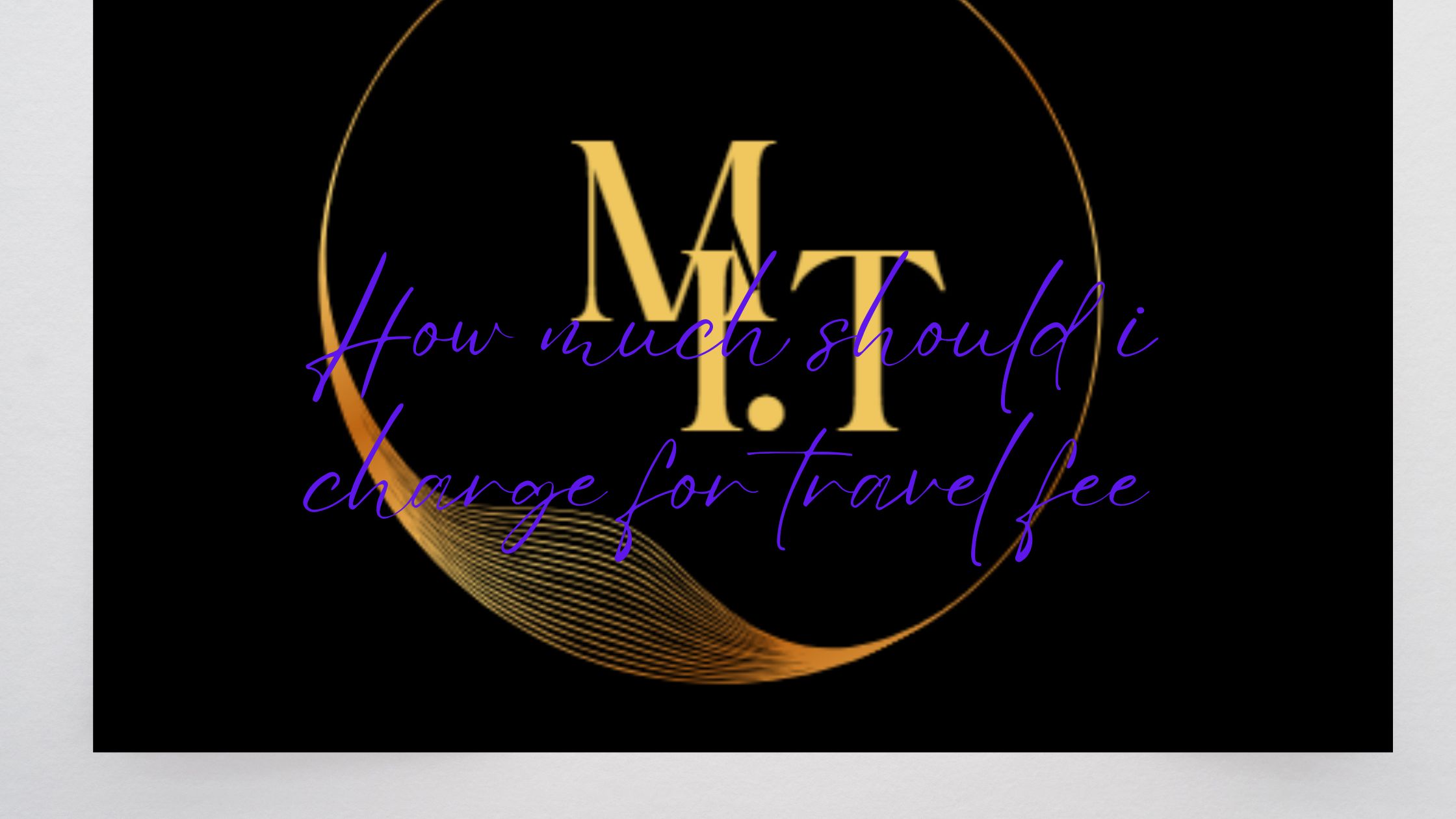Contents
- 1 How much should i charge for travel fee
- 2 Introduction of How much should i charge for travel fee
- 3 Factors to Consider When Setting a Travel Fee
- 4 Methods for Calculating Your Travel Fee
- 5 Communicating Your Travel Fee to Clients
- 6 Best Practices for Charging Travel Fees
- 7 FAQ about How much should i charge for travel fee
- 8 Conclusion of How much should i charge for travel fee
- 9 Tradesmen charging travel time
- 10 Travel fee calculator
- 11 Freelance charge for travel time
- 12 How much to charge for travel fee for photography
- 13 How much to charge for travel per mile
“Unsure how much to charge for travel fee? Discover how much should I charge for travel fee with our comprehensive guide.”
How much should i charge for travel fee

How much should i charge for travel fee : A Pricing Guide
Introduction of How much should i charge for travel fee
How much should i charge for travel fee : For specialists, experts, and organizations that offer types of assistance beyond their standard area, choosing the amount to charge for a movement expense is an essential choice. Setting the right travel fee can have an impact on your profit and customer satisfaction, whether you’re a photographer going to a shoot, a specialist going to a client, or a project worker dealing with the site. How to figure out your fee and effectively explain this cost to your customers are all covered in this comprehensive guide on “How much should I charge for travel fee.” By understanding these aspects, you can ensure that your travel fees are fair, transparent, and in line with your business goals.
Factors to Consider When Setting a Travel Fee
Setting an appropriate travel fee involves several key factors. Each factor can influence the overall cost and how it should be presented to your clients.
Distance and Travel Time
One of the most straightforward factors is distance. The farther you travel, the higher your charge ought to be to cover extra costs like transportation, housing, and feasts. Additionally, travel time is a crucial factor. Assuming your excursion calls for huge time away from your customary work, this ought to be considered into your charge to make up for lost efficiency.
Calculating Travel Distance and Time
To precisely compute the movement expense in view of distance and time, you can utilize the accompanying technique:
- Measure the distance between your area and the client’s site.
- Estimate travel time, including potential delays.
- Determine your hourly or per-mile rate for travel time and distance.
Transportation Costs
Transportation costs can vary widely based on your mode of travel. Common transportation costs include:
- Car Expenses: Gasoline, maintenance, and depreciation.
- Public Transport: Train or bus fares.
- Air Travel: Flights, stuff charges, and air terminal exchanges.
Estimating Transportation Costs
Here’s a simple table to help estimate transportation costs: How much should i charge for travel fee
| Mode of Transport | Cost Per Mile/Kilometer | Example Cost (Round Trip) |
|---|---|---|
| Car | $0.50 per mile | $50 for 100 miles |
| Train | $1.00 per mile | $100 for 100 miles |
| Air Travel | Varies by distance | $300 for a 500-mile trip |
Accommodation and Meals
You’ll need to budget for food and lodging if your trip calls for an overnight stay. The quality and location of a hotel or restaurant can affect how much it costs.
Calculating Accommodation and Meals
You can estimate these costs by:
- Researching average hotel rates in the destination area.
- Estimating daily meal costs, either by using per diem rates or actual expenses.
| Type of Expense | Estimated Daily Cost | Example Cost (3 Days) |
|---|---|---|
| Hotel | $100 per night | $300 for 3 nights |
| Meals | $50 per day | $150 for 3 days |
Additional Fees and Expenses
Consider any additional costs that may arise, such as: How much should i charge for travel fee
- Parking Fees: If applicable.
- Tolls: For highways or bridges.
- Travel Insurance: To cover unexpected issues.
Incorporating Additional Fees
Add any additional fees to your base travel cost. It’s essential to account for these in your overall pricing to avoid unexpected expenses.
Methods for Calculating Your Travel Fee
There are several methods to calculate your travel fee, each with its advantages. Here are some common approaches:
Flat Rate Fee
A level rate expense is a limited sum charged no matter what the distance voyaged or time spent. This strategy gives straightforwardness and consistency to both you and your clients.
Pros:
- Easy to communicate and understand.
- Simplifies invoicing.
Cons:
- May not account for significant variations in travel costs.
- Could result in overcharging or undercharging based on the actual distance and time.
Per-Mile/Per-Kilometer Rate
Charging in light of the distance voyaged is a typical strategy, particularly for vehicle travel. By multiplying the number of miles or kilometers by a predetermined rate, this method determines your fee.
Pros:
- Reflects the actual distance traveled.
- Adjusts for longer trips.
Cons:
- May require detailed tracking of travel distance.
- Can become complex with varying rates.
Hourly Rate
An hourly rate covers the time spent traveling, which includes both driving time and any potential delays.
Pros:
- Compensates for time away from other work.
- Useful for long or unpredictable journeys.
Cons:
- May be difficult to estimate accurately.
- Can be less transparent for clients.
Combination Rate
A combination rate incorporates aspects of hourly, per-mile, and flat rates. You could, for instance, charge a flat fee for local travel and a mile-per-mile fee for travel over greater distances.
Pros:
- Offers flexibility and customization.
- Can accurately reflect both time and distance costs.
Cons:
- More complex to calculate.
- Requires clear communication with clients.
Communicating Your Travel Fee to Clients
When discussing travel fees with clients, it is essential to communicate clearly. Disagreements and disagreements can result from misunderstandings.
Transparency and Documentation
Provide a detailed breakdown of your travel fee, including:
- Distance Traveled: Show the mileage or distance.
- Time Spent: Detail the travel time.
- Include costs for meals, lodging, and transportation in the incurred expenses section.
Example Breakdown:
- Distance: 150 miles at $0.50 per mile = $75 Travel Time: $60 for 2 hours at $30 an hour Convenience: $150 for one evening Feasts: $50 each day = $50
Total Travel Fee: $75 + $60 + $150 + $50 = $335
Setting Expectations
Discuss your travel fee policy with clients upfront. Include it in your initial proposal or contract, and make sure they understand what is covered.
Negotiation and Flexibility
Be prepared for negotiations. Clients might request adjustments based on their budget or specific needs. Offering some flexibility can help maintain a good working relationship.
Best Practices for Charging Travel Fees
Implementing best practices can help you effectively manage travel fees and maintain client satisfaction.
Regular Review and Adjustment
Regularly review and adjust your travel fee structure based on changes in travel costs, business needs, and client feedback.
Use Technology and Tools
Influence apparatuses, for example, mileage trackers, cost administration applications, and travel mini-computers to smooth out the interaction.
Document Everything
Keep thorough records of your travel expenses and time spent. Accurate documentation supports your fee calculations and helps resolve any potential disputes.
FAQ about How much should i charge for travel fee
How do I determine my travel fee rate?
Consider the distance, time, costs of transportation, lodging, and additional costs when determining your travel fee rate. You can utilize strategies like level rates, per-mile rates, hourly rates, or a blend of these.
Can I charge different rates for different clients?
Yes, you can charge different rates based on client needs, travel distance, or project scope. Ensure that any variations in rates are clearly communicated and documented.
How can I make my travel fee more transparent to clients?
Give a comprehensive breakdown of your travel fee, including costs, duration, and distance. Include your fee structure in contracts or proposals and discuss it upfront.
What should I do if a client disputes my travel fee?
In the event that a client debates your movement charge, present point by point documentation of your costs and time spent. To find a solution that both parties can agree on, communicate clearly and, if necessary, negotiate.
Is it acceptable to include a travel fee in my contract?
Yes, including a travel fee in your contract is advisable. It sets clear expectations and avoids misunderstandings about travel costs.
Conclusion of How much should i charge for travel fee
Determining “how much should I charge for a travel fee” is a diverse interaction that includes cautious thought of different elements, including distance, time, transportation, and convenience costs. By utilizing the strategies framed in this aide and following prescribed procedures, you can set a fair and straightforward travel charge that lines up with your business objectives and client assumptions. Keep in mind to communicate clearly, keep track of your costs, and be adaptable when necessary. You can make sure that your travel costs are fair and reflect the value you provide by employing these methods.
For further reading and resources on travel fee calculations and best practices, consider visiting The Balance Small Business and Forbes.
People also search for
Tradesmen charging travel time
Tradesmen charging travel time : At the point when merchants charge for movement time, they represent the time spent going to and from a place of work, in addition to the genuine work performed. The loss of productivity and travel expenses are covered by this fee. Tradespeople typically take into account distance, travel time, and transportation costs when determining a fair price. Charging for movement time helps cover costs that are not straightforwardly connected with the assistance gave however are important to finishing the task. Clear correspondence about these accuses of clients guarantees straightforwardness and keeps away from misconceptions.
Travel fee calculator
Travel fee calculator : Tradespeople who charge for travel time get paid fairly for the time they spend traveling to job sites. This training takes care of the expenses related with distance, fuel, and lost work hours. When tradespeople include travel time in their prices, they take into account both the cost of traveling and the loss of opportunities. To maintain transparency with customers, tradespeople must include travel time costs in their quotes. Thusly, they guarantee clients grasp the all out cost of administrations, encouraging trust and decreasing possible debates. Tradespeople can better control their expenses and stay profitable with this strategy.
Freelance charge for travel time
Freelance charge for travel time : By charging for travel time, freelancers ensure that they are paid fairly for the time spent traveling to client locations. This charge covers costs like transportation, fuel, and the open door cost of not dealing with different undertakings. By including a movement time expense, specialists adjust their valuing to the genuine expense of offering nearby types of assistance. Clear correspondence about movement time charges in agreements and proposition helps set client assumptions and evades errors. Freelancers can effectively manage their workload and maintain profitability by accurately accounting for travel time, ensuring a balanced approach to client service and financial stability.
How much to charge for travel fee for photography
How much to charge for travel per mile
Determining how much to charge for travel per mile includes ascertaining costs connected with fuel, vehicle upkeep, and time. Divide the cost of operating your vehicle, including gas and wear and tear, by the number of miles driven to arrive at an accurate rate. A typical practice is to utilize a for each mile rate that mirrors these costs, guaranteeing you are genuinely made up for movement. Transparency is essential; to effectively manage client expectations, clearly outline this rate in your contracts or quotes. Appropriately setting a for each mile charge assists cover with voyaging costs and keep up with productivity while giving a reasonable and fair estimating structure for clients.


1 thought on “How much should i charge for travel fee : A Pricing Guide”